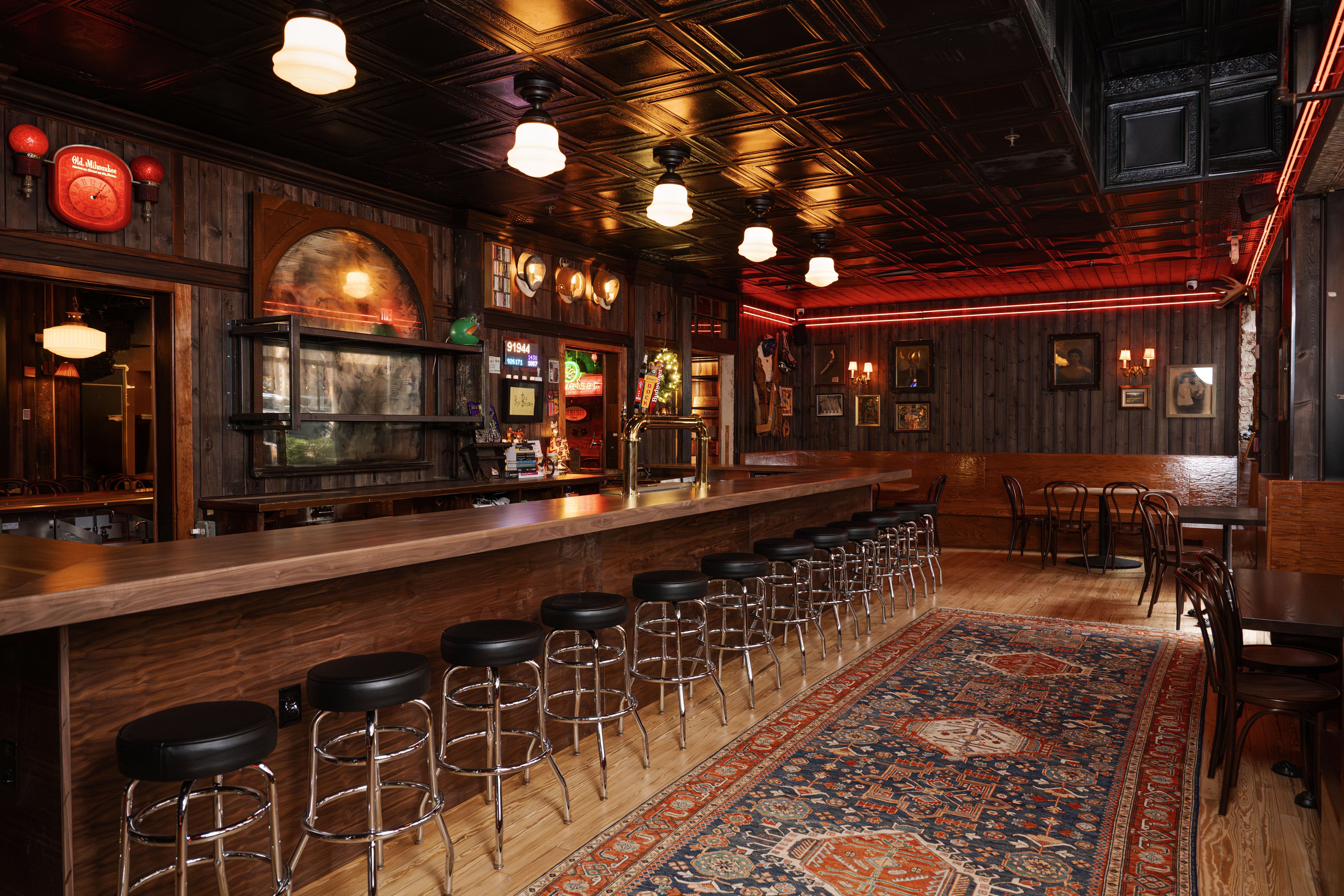WASHINGTON — Double-stacked burgers and super-sized fries are no longer the portrait of fast food. Instead, quinoa bowls, wood-fired flatbreads and locally sourced lamb pitas are winning over the hearts of time-strapped diners in the District.
In a year where fast-food giant McDonald’s saw a 4.6 percent slide in U.S. sales, fast-casual restaurants’ sales went up by 10.5 percent, The Economist reports. What’s causing the shift? A number of factors are fueling the success of the fast-casual industry nationwide, including commitments to fresh ingredients, customizable options and nutritional transparency.
And in D.C., the city’s burgeoning food scene is enticing small companies and startups to test their creative culinary concepts.
When business partners Dimitri Moshovitis, Ted Xenohristos, Ike Grigoropoulos and Brett Schulman opened their first Cava Mezze Grill in 2011, the group knew they wanted Cava Mezze Grill to be a fast-casual spin-off of their popular, full-service restaurant Cava Mezze. But Schulman says he didn’t predict how successful it would be.
“We knew that we could take culinary-driven, high-quality ingredients and put it in a fast format, where you combine it by leveraging the naturally healthy profile of Mediterranean foods,” Schulman says. “But what we’ve seen is these trends just accelerate even faster than we expected.”
Four years later, Cava Mezze Grill has nine locations in D.C., Maryland and Virginia, and it’s become the fastest-growing part of the Cava Mezze company, which also sells dips and spreads at grocery retailers, The Washington Post reports.
Schulman says an increased awareness of health and sustainability is one driver of Cava Mezze Grill’s success: “People have become much more aware of what they’re putting on the inside of their body and caring about it.”
And Schulman’s observations are reflected in national trends. A recent study released by the USDA says American adults are improving their food choices by consuming fewer calories from fat, eating more fiber and consuming less cholesterol.
“I think as a society, maybe we got a little spoiled on cheap food, and I think now, everybody’s realizing the health ramifications of that, and so I think people are willing to spend a little bit more on what’s going inside their bodies,” Schulman says.
Similar to other fast-casual restaurants, Cava Mezze Grill makes it a point to let customers know exactly what they’re eating. The company’s website lists nutritional information, based on all of the possible menu combinations, and, when available, lets customers know where the ingredients come from, since much of it is sourced from local farms.
Cava Mezze Grill’s menu format is similar to that of Chipotle: Customers pick a base of salad, grains or pita and then choose what they want piled on top. Options range from spreads such as hummus, tzatziki and harissa, to proteins such as falafel, chicken, braised lamb and meatballs. Crumbled feta, tomato, olives, mint and more are also available for final toppings.
“People can not only customize their meal to their tastes and preferences, or any allergen sensitivities, but also nutritional content,” Schulman says. “It just allows them to make a customized decision based on their lifestyle choices.”
Customization Creates Cash
Being able to find fast and healthy food to accommodate his high-protein diet is exactly what inspired Matt Matros to open his first Protein Bar in Chicago six years ago.
Matros, who says he was always “the fat kid” growing up, made a major lifestyle change when he was 22. His father passed away from a sudden heart attack at a young age, and Matros says, “I realized I was sort of heading down that path myself.”
He switched to a high-protein diet and lost 50 pounds in seven months. But it was a short stint in the food manufacturing industry that finally drove Matros to get into the fast-casual restaurant business.
“I saw what it was like to work for a big manufacturer of highly processed foods, and I just realized that what people were putting in their body wasn’t the best thing for them,” Matros says.
With his life’s savings, Matros started dishing up quinoa bowls, salads with house-made dressings and protein-packed, low-calorie wraps across from the Sears Tower.
“I think American food companies have really trained consumers over the past 30, 40 years that bigger is better, and that’s not the case. It’s actually the right calories that you want to put in your body versus more,” says Matros, who just opened his 19th Protein Bar location; three are in D.C.
The real defining difference between fast-casual chains and traditional fast-food restaurants, Matros says, is that customers can decide what makes the most sense to them, based on their health and lifestyle restrictions and their taste preferences. Many fast-casual concepts offer vegetarian, vegan, gluten-free and dairy-free choices.
“We just provide a palate of options, and we really want the customer to choose what’s healthiest for them,” Matros says.
There’s no denying that the fast-casual industry is growing in the D.C. area. National chains such as Chipotle and Nando’s Peri-Peri occupy some of the space, but hometown operations such as Sweetgreen and Soupergirl are staying busy among competition too.
Soon, D.C.’s culinary king José Andrés will launch his first fast-casual concept, Beefsteak. And while Matros has witnessed competitive activity in the market, he says he’s not worried.
“I think that a rising tide raises all ships, and I think the more attention and the more eyeballs and the more focus we can get around consumers making healthier choices, the better,” he says.
Andrés may be jumping into the fast-casual game later than Schulman and Matros, but he says opening Beefsteak is still going to be a challenge, even if others have succeeded in the same space – mostly because the restaurant will be vegetable-focused.
“For me, vegetables have always been the biggest growing part of my menus,” says Andrés, who owns a number of other D.C. restaurants, including Zaytinya, Oyamel, Jaleo, Minibar and his newest, China Chilcano. “Meat can be very boring. If you put a piece of meat in your mouth, the first five seconds are great, but the next 25 seconds are the most boring time of my life. … A vegetable is much more exciting, from the moment you eat it to the moment you put it down — far more exciting.”
Andrés says he is staying away from the word “healthy” when discussing his plans for the Foggy Bottom-based Beefsteak. “Food, on paper, is supposed to be healthy,” he says, adding that it’s how society has treated food in recent years that makes it unhealthy.
Andrés says Beefsteak’s menu will be packed with ingredients familiar to most. Customers will select a vegetable, which will be cooked to order in front of them. Then, they will choose a grain, a sauce, various toppings and even small pieces of a protein, such as egg, salmon or chicken, if desired.
“But this is almost like a side dish. I’m not expecting [the protein] to be more than 2 to 3 percent of the plate.” Andrés says.
Andrés calls the District’s booming fast-casual industry “unique,” citing everything from the rise of farmers market tacos to the continued success of D.C.-based companies such as Sweetgreen.
“It’s so funny that this is becoming this hub for fast-casual concepts,” he says. “It’s good that these things are happening. I like the see the different levels of success that the different concepts have.”
Protein Bar’s Matros says the growing interest in, and demand for, healthy fast-casual food is a trend that challenges chefs and business owners. He says it’s also one that could tip the scales when it comes to the nation’s health.
“I really like to think that we’re really in the second inning of this healthy eating game,” Matros says. “So the more players, the more attention, the better it is for us, because it just continues to make us evolve and innovate and always try to find the newest, hottest, healthiest ingredients that we can serve up to our guests.”
Follow WTOP and WTOP Living on Twitter and on the WTOP Facebook page.







